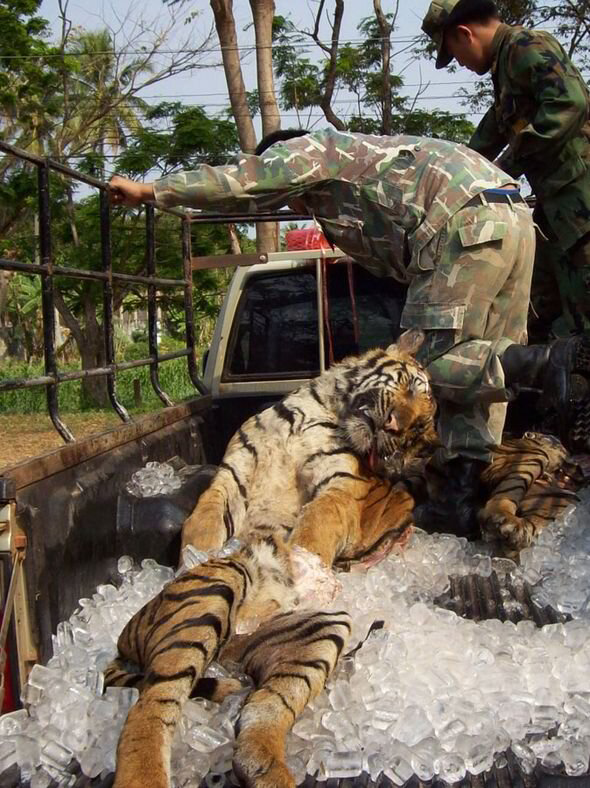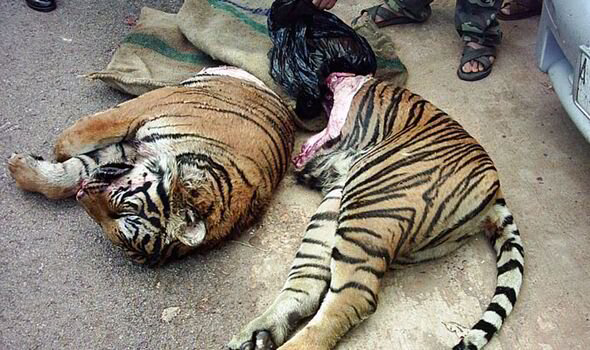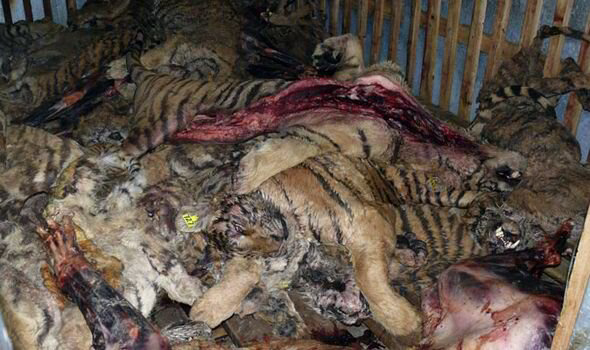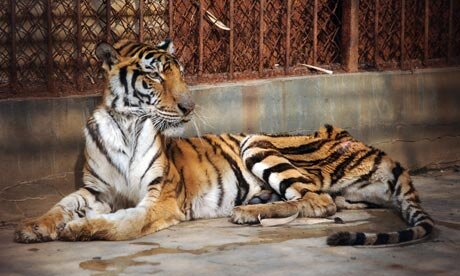Graham
Well-Known Member
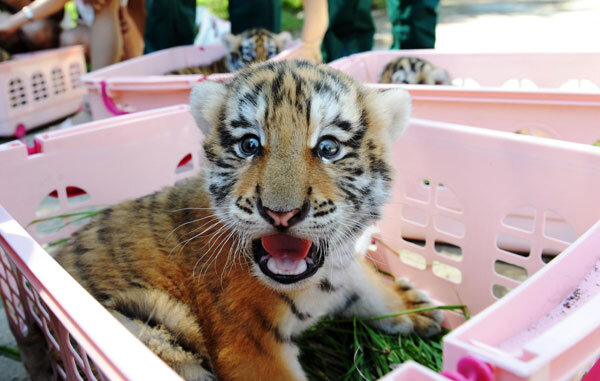
A tiger cub born just a few weeks ago at the Siberian Tiger Park in Harbin, Northeast China's Heilongjiang province on June 2, 2013. Some 60 cubs have been born since April this year, which is expected to increase to 100.
.
.
Then this,
Amazint to understand that there are still so many wild tigers in the mountains of North East China.
Fay is originally from North East China, and she tells me things about where people went into the forest, and never came back.
Suspect they were eaten by tigers.
Herders in Hunchun, a small city in Northeast China's Jilin province, fear nothing more thanSiberian tigers.
Wang Zengxiang, 50, a herdsman in Hunchun, runs a ranch at the foot of a mountain wherethe tigers and other wild animals live.
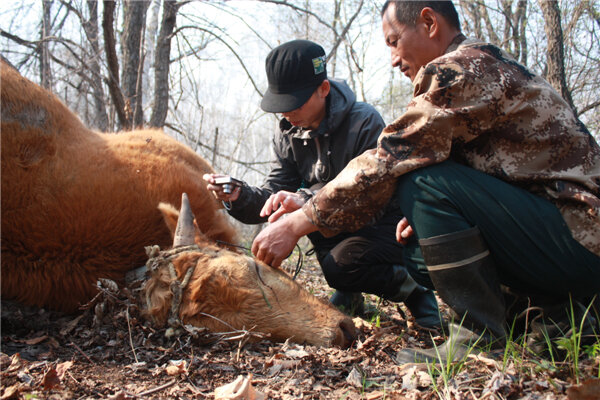
[TABLE="align: center"]
[TR]
[TD]
Wang Zengxiang, a herdsman in Hunchun, Jilin province, and an official from the Wildlife ConservationSociety check the bite marks on a cow that was killed by Siberian tigers on Monday. Yang Jun / forChina Daily
[/TR]
[/TABLE]
On two consecutive days, on Sunday and then Monday morning, he lost cattle. He suspectedthe big cats had killed the two cows.
Wang's suspicions were confirmed by a local wildlife official.
Yang Jun, an official of the Hunchun Forestry Bureau, concluded from the bite marks on thecarcasses and footprints at the ranch that tigers living on the mountain had killed the cattle.
The human-wildlife conflict remains a problem in Siberian tiger habitats as the localgovernment has expanded its wildlife protection programs in the past decade.
In the past two years, there have been 589 cases of wild animals, such as tigers and bears,attacking livestock or destroyed crops.
Since May 2, Yang has received four reports of tigers attacking livestock.
"What we can do is very limited," he said. "Aside fromoffering compensation, we can only conduct regular patrolsand warn the herders not to go into mountains bythemselves and to fence in their free-range cattle."
Last year, the Hunchun forestry bureau paid residents 3.66million yuan ($588,900) in compensation for losses fromwild animal attacks.
But the compensation system remains problematic.
Wang lost seven heads of cattle last year and two this year,all from tiger attacks. He said each of them would have soldfor 3,000 to 4,000 yuan.
When Wang filed for compensation with the localgovernment, he was told it would be paid at the end of theyear and only if he could back up his claim with thecarcasses. He could not prove some of the cases becauseno remains had been left. Consequentially, Wang said, helost far more than he received in compensation.
Fan Zhiyong, an expert with the World Wildlife Fund, said amore reasonable system of claim evaluation andcompensation needs to be worked out to solve the problem.
Jilin's compensation guidelines for losses from human-wildlife conflicts, enacted in 2007, donot cover all the damage caused by wild animals.
Fan said herders should gradually switch from free-range to captive livestock to prevent tigerattacks.
But, "If tigers don't have enough prey, they will hunt domesticated livestock," he added.




